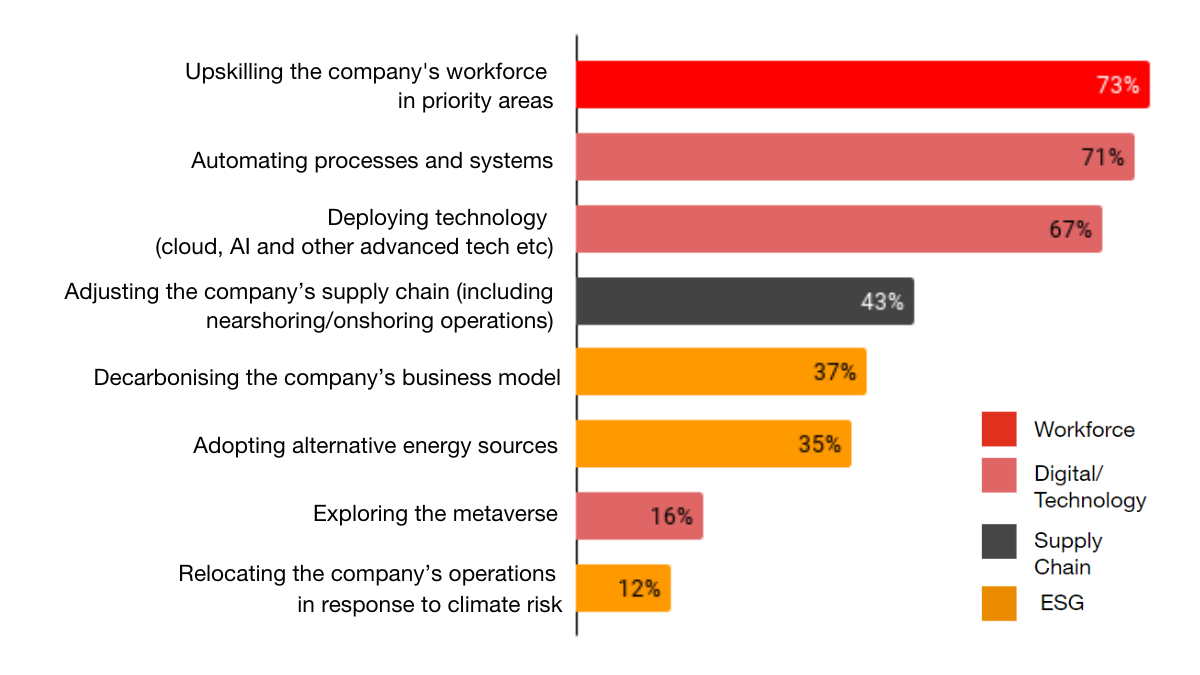
PwC report reflects CEO"s latest sentiments
Latest
Accordingly, 69 per cent of Asia-Pacific CEOs believe global economic growth will decline over the next 12 months, compared to last year when 76 per cent felt growth would improve.
Despite gloomy economic prospects, Vietnam still shows high confidence in the country’s economy in 2023.
 |
In light of the fresh report, Asia-Pacific CEOs are facing the dual imperative of pushing to manage short-term external risks and drive profitability, whilst simultaneously transforming to thrive in the longer term.
Mai Viet Hung Tran, Assurance Leader at PwC Vietnam noted, “Despite the tumultuous economic and political climate globally, the Asia-Pacific region remains a major player in trade and economic activity, with Vietnam shining as a bright spot for growth. As with their counterparts in the region, Vietnamese CEOs are facing growing societal pressures.
To lead effectively in this challenging environment, they need a comprehensive understanding of both the challenges and opportunities at hand. This presents a unique chance for these leaders to establish trusted, resilient, and profitable businesses for the future through visionary leadership.”
The report shows that while health and cyber risks were the top concerns a year ago, the impact of the economic downturn is paramount for Asia-Pacific CEOs this year, with inflation (41 per cent) and macroeconomic volatility (30 per cent) leading the risks in both the short and medium term.
Geopolitical conflict (30 per cent) also stands out as one of the top dangers. The conflict in Ukraine and growing concern about geopolitical flashpoints in other parts of the world have caused Asia-Pacific CEOs to rethink aspects of their business models.
Despite fading CEO confidence in the global economy, Asia-Pacific CEOs are far less pessimistic about the prospects of their own countries compared to their global counterparts.
The growing emphasis on national interests over global ones represents an acceleration of trends underway, however, the fundamentals of the region continue to be bolstered by trade liberalisation and markets welcoming foreign direct investment.
According to the new report, CEOs in Vietnam are facing a unique set of challenges, just like their counterparts in the Asia-Pacific region.
They must navigate the current economic landscape while also preparing their businesses for the future.
As such, there are several key insights they can draw from their regional peers and act to ensure their companies' longevity.
Firstly, while Asia-Pacific CEOs have reversed their prior optimistic sentiment on the global economy, Vietnam is expected to outperform its regional and global peers.
Despite the gloomy global outlook, the country continued to show great strength and resilience in 2022, resulting in GDP growth of 8.02 per cent – higher than the global figure at 3.2 per cent and Asia-Pacific at 4 per cent on average. Looking into 2023, Vietnam is projected to grow by up to 7.2 per cent.
Secondly, nearly half of the CEOs in Asia-Pacific are cutting operational costs, personifying products, raising prices, and adjusting supply chains.
CEOs in Vietnam should focus on efficiencies to ensure continuity and competitiveness, as the country is also exposed to changes and threats in the current economic environment.
Thirdly, fifty-three per cent believe their current business models will not survive within the next decade, indicating the urge to transform to remain viable.
To make the transformation journey a success, Vietnamese CEOs need to overcome any resistance to change and leverage digital and technological advantages to fill the environmental, social, and governance (ESG) action gap.
In addition, to engage and inspire people, Vietnam's business leaders should pay more attention to empowerment within the workforce, while seeking to adopt more sustainable and ESG practices through greater communication and collaboration with the government and other partners to drive sustainable growth.





















